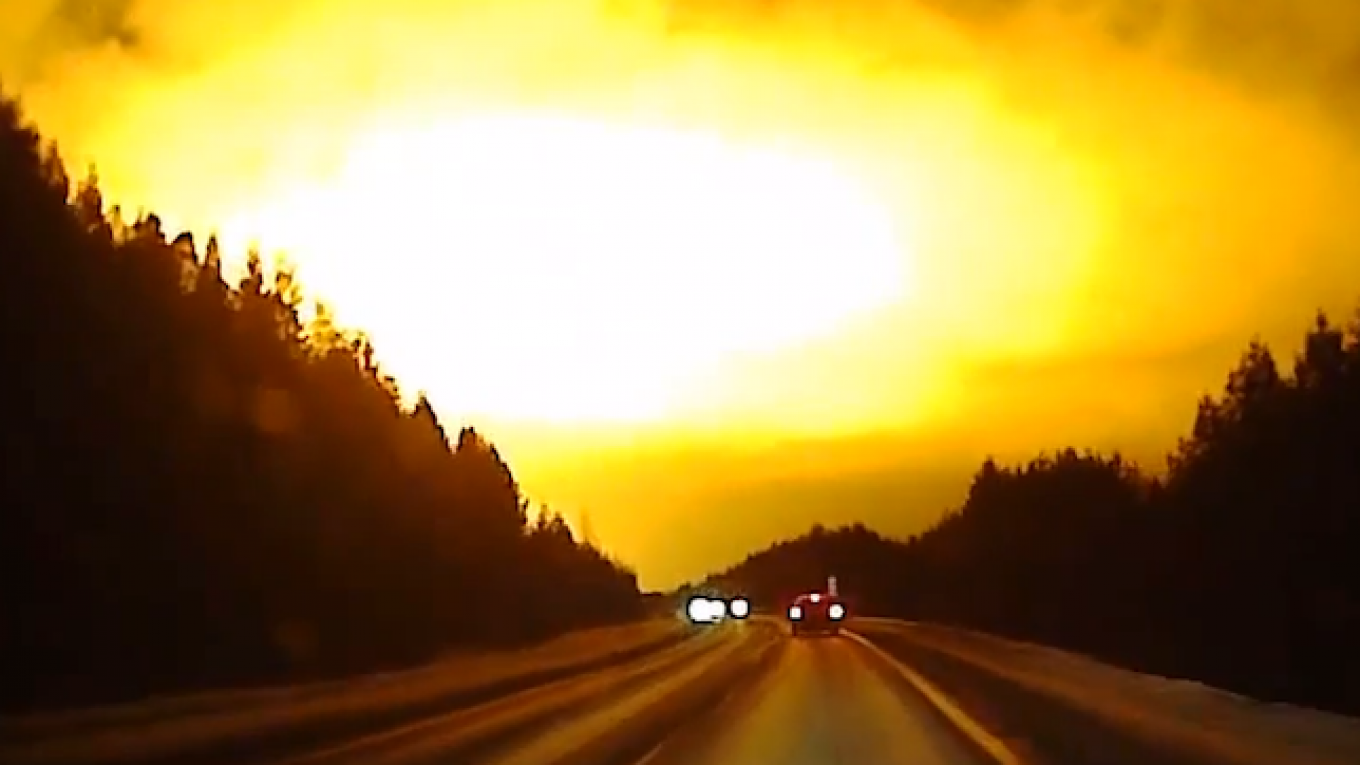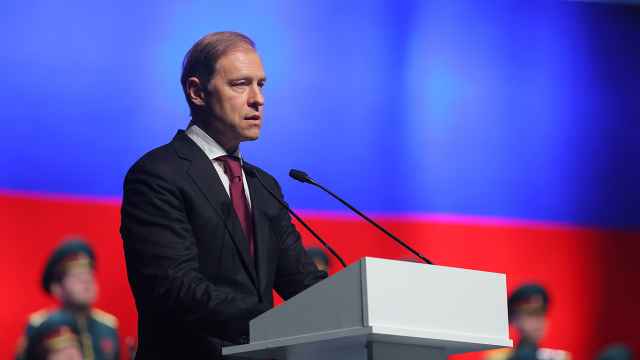A giant burst of light that lit up the sky above Sverdlovsk last week may have impressed local residents, but scientists, government officials and the military have been left scratching their heads as to what exactly was behind it.
While a physicist attributed the flash to an exceptionally bright meteorite, the Emergency Situations Ministry blamed it on a local military base disposing of explosives, regional news site E1.ru reported Tuesday. The army later denied having anything to do with it.
The fireball, which burst in the region's nighttime sky on Friday evening, was captured on video by several witnesses who have since posted their footage online.
One of the videos shows an orange glare appearing above a highway, quickly forming a huge fireball before shrinking and disappearing — all within a few seconds.
Another video shows a burst of orange light in the sky above the countryside, eliminating the surrounding fields and a tree grove and then retreating.
"Wow, what even was that?" a boy can be heard saying in the video. He and his friends also expressed their astonishment by using expletives.
Viktor Grokhovsky, a physics professor at Ural Federal University and member of the Russian Academy of Sciences' meteorite study committee, said the fireball "looked very much like one impressive bolide," E1.ru reported. A bolide is an exceptionally bright meteor.
"It was above the clouds, and that's why the phenomenon turned out to be so unusual," Grokhovsky was quoted as saying. "This is not at all dangerous, but very interesting for science."
A spokeswoman for the local branch of the Emergency Situations Ministry, Natalya Zyryanova, told E1.ru that instead the fireball was likely caused by a planned disposal of explosive at a nearby military range.
"The army should know for sure, but we can definitely say that no emergency situations, no incidents have occurred [in the area]," Zyryanova was quoted as saying.
But the military denied detonating any explosives in the area.
"No exercises or trainings were held on that day," a spokesman for the Central Military District, which includes the Ural Mountains, was quoted as saying. "No military units are stationed in that area, so we had nothing to do with the incident."
Grokhovsky, the physicist, told the Komsomolskaya Pravda newspaper that the apparent bolide appears to have burned out at about 10-15 kilometers above the Earth's surface, but that scientists would need additional video footage and detailed witness accounts to evaluate the event more precisely.
This week marked the peak of the Leonids meteor shower, which every year brings streaks of light through the sky. It remained unclear whether the Leonids were behind the Ural Mountain fireball.
Residents in Chelyabinsk, another city near the Urals, last year witnessed a giant meteor explosion that generated a force estimated to be 20 to 30 times greater than the atomic bomb dropped on Hiroshima in 1945.
The rock blew up 30 kilometers over the city and, though no one died, 1,500 people were injured by the blast.
A Message from The Moscow Times:
Dear readers,
We are facing unprecedented challenges. Russia's Prosecutor General's Office has designated The Moscow Times as an "undesirable" organization, criminalizing our work and putting our staff at risk of prosecution. This follows our earlier unjust labeling as a "foreign agent."
These actions are direct attempts to silence independent journalism in Russia. The authorities claim our work "discredits the decisions of the Russian leadership." We see things differently: we strive to provide accurate, unbiased reporting on Russia.
We, the journalists of The Moscow Times, refuse to be silenced. But to continue our work, we need your help.
Your support, no matter how small, makes a world of difference. If you can, please support us monthly starting from just $2. It's quick to set up, and every contribution makes a significant impact.
By supporting The Moscow Times, you're defending open, independent journalism in the face of repression. Thank you for standing with us.
Remind me later.





